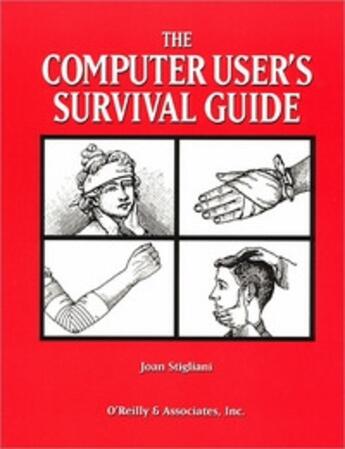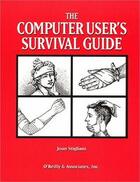-
Date de parution : 24/06/1998
-
Editeur :
O Reilly & Ass
-
EAN : 9781565920309
-
Série :
(-)
-
Support :
Papier
Résumé:
You probably suspect, on some level, that computers might be hazardous to your health. You might vaguely remember a study that you read years ago about miscarriages being more frequent for data entry operators. Or you might have run into a co-worker wearing splints and talking ominously... Voir plus
You probably suspect, on some level, that computers might be hazardous to your health. You might vaguely remember a study that you read years ago about miscarriages being more frequent for data entry operators. Or you might have run into a co-worker wearing splints and talking ominously about Workers' Comp insurance. Or you might notice that when you use a computer too long, you get stiff and your eyes get dry.
But who wants to worry about such things? Surely, the people wearing splints must be malingerers who don't want to work? Surely, the people who design keyboards and terminals must be working to change their products if they are unsafe? Surely, so long as you're a good worker and keep your mind on your job, nothing bad will happen to you?
The bad news is: You can be hurt by working at a computer. The good news is that many of the same factors that pose a risk to you are within your own control. You can take action on your own to promote your own health -- whether or not your terminal manufacturer, keyboard designer, medical provider, safety trainer, and boss are working diligently to protect you.
The Computer User's Survival Guide looks squarely at all the factors that affect your health on the job, including positioning, equipment, work habits, lighting, stress, radiation, and general health.
Through this guide you will learn:
A continuum of neutral postures that you can at utilize at different work tasks how radiation drops off with distance and what electrical equipment is responsible for most exposure how modern office lighting is better suited to working on paper than on a screen, and what you can do to prevent glare simple breathing techniques and stretches to keep your body well oxygenated and relaxed, even when you sit all day how reading from a screen puts unique strains on your eyes and what kind of vision breaks will keep you most productive and rested what's going on "under the skin" when your hands and arms spend much of the day mousing and typing, and how you can apply that knowledge to prevent overuse injuries The Computer User's Survival Guide is not a book of gloom and doom. It is a guide to protecting yourself against health risks from your computer, while boosting your effectiveness and your enjoyment of work.
Donner votre avis















